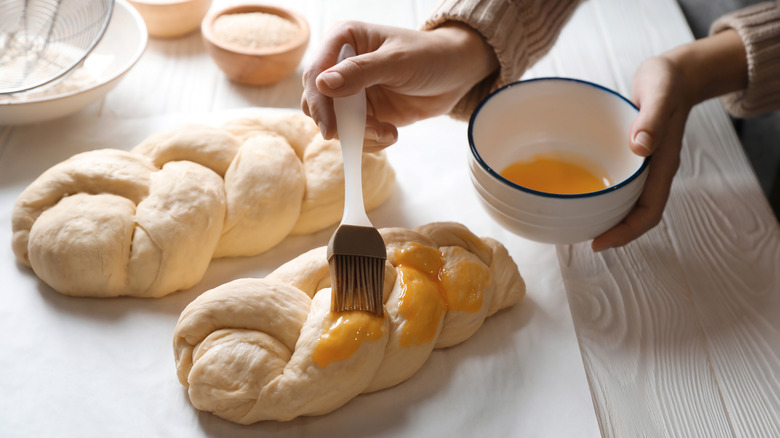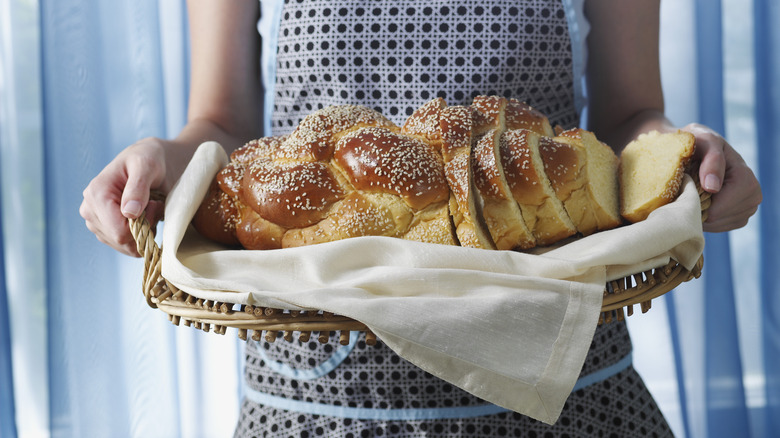Why Your Challah Bread's Braids Fell Apart In The Oven
Alongside your traditional Hanukkah brisket, you absolutely must have a couple loaves of braided challah bread on your holiday table. History and culture imbue plenty of meaning into the Jewish foods traditionally eaten during the Festival of Lights — consider the significance of oil-rich latkes, which are synonymous with Hanukkah — and challah is no exception. Widely interpreted as a symbol of manna from heaven and standing in as a sign of abundance and blessings, challah is not only often eaten each Friday to celebrate Shabbat, but on Jewish holidays like Hanukkah.
The act of baking challah is a meditation unto itself, encouraging mindfulness and pleasure in feeding your family. But it is a specialty bread, and one that can be fraught with potential technical issues. One common challah mishap is that the braided bread falls apart during baking. What happened to the gorgeous shape of your loaf? The answer is simple: challah braids come undone because the bread dough was not allowed to rise for long enough before hitting the oven.
Don't rush the proof of your challah dough
Challah requires two rises before baking: one in the bowl after you've mixed your ingredients, and another after you've shaped the loaf or loaves. There is simply no way to hurry this process along. For successful shaping that won't fall apart during the bake, your challah dough has to be allowed to rise to its maximum possible fullness. You'll know you've hit peak rise when the dough is spongy and inflated like a marshmallow, has about tripled in size, and its surface has become puckered. Look for the same fullness after you've braided the dough and before baking. This is because you don't want to challah to have the opportunity to rise any further in the oven, which will push your braid apart.
A bread proofing basket can help you monitor the rise of your challah while giving it the space it needs to grow and grow. In an absolute time crunch, you can let your dough rise in a cold oven with the light on to hurry it along a little bit, but this is not ideal. There is no substitute for a long, unhurried rise on your challah — at least three hours. For ideal results, you may even wish to set your dough out on the kitchen counter overnight and go to sleep. The extra time out will not hurt the resulting bread, and you will help your challah to hold its shape gorgeously, making it a picture-perfect centerpiece for your Hanukkah table.

